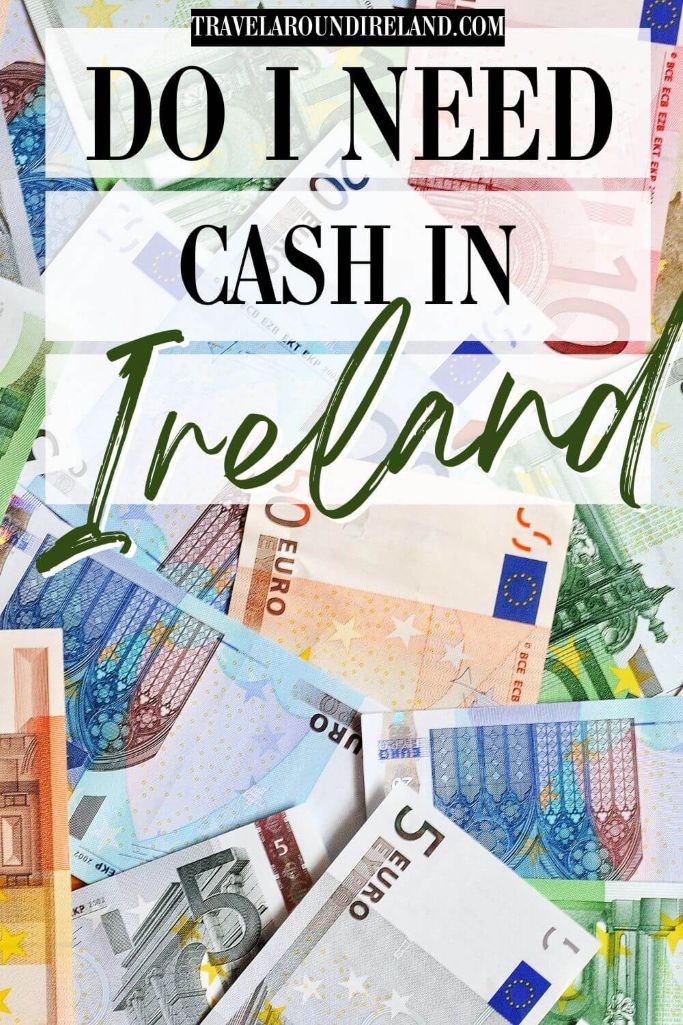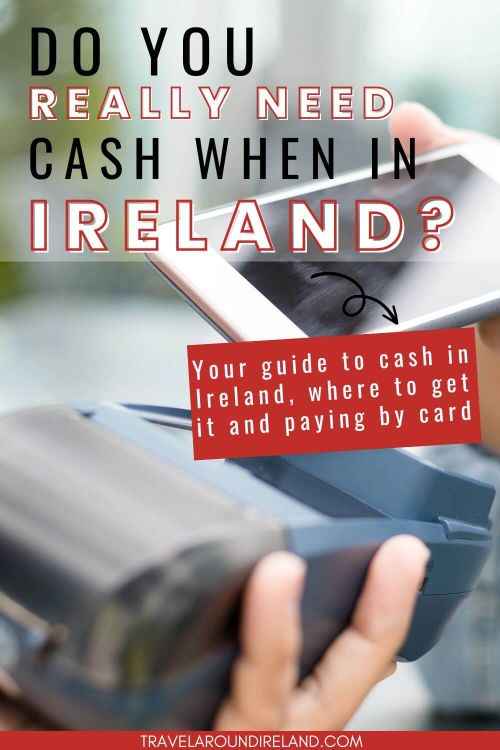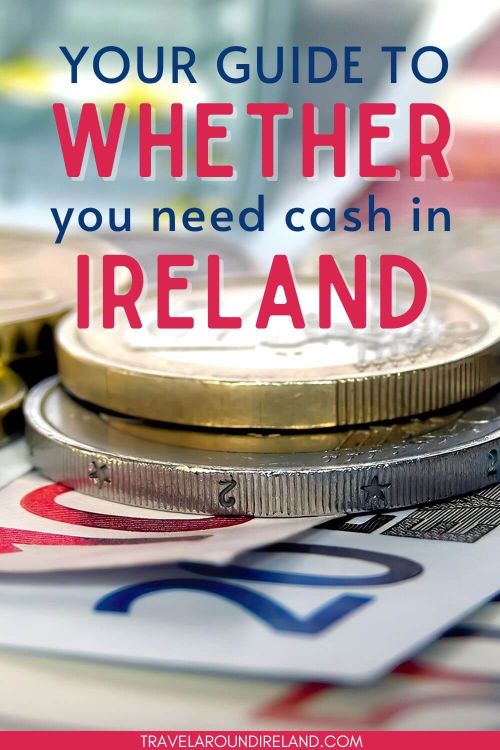If you’re planning a trip to the Emerald Isle, one of the first questions you’ll probably ask is: do I need cash in Ireland?
With tap-to-pay technology, Apple and Google Pay, and chip-and-PIN cards accepted almost everywhere, it can be tempting to assume you can ditch physical money altogether.
But hold up—while Ireland is increasingly cashless, there are situations where having some euros (and even pounds if you’re heading north) will save you stress, embarrassment, or missed opportunities. From rural honesty boxes to tipping your guide on a castle tour, cash still has a place.
In this guide, I walk you through exactly when and where you might need cash, how much to bring, and the best ways to access it—so you can travel with confidence and avoid any awkward “card declined” moments in the middle of a misty Irish field.
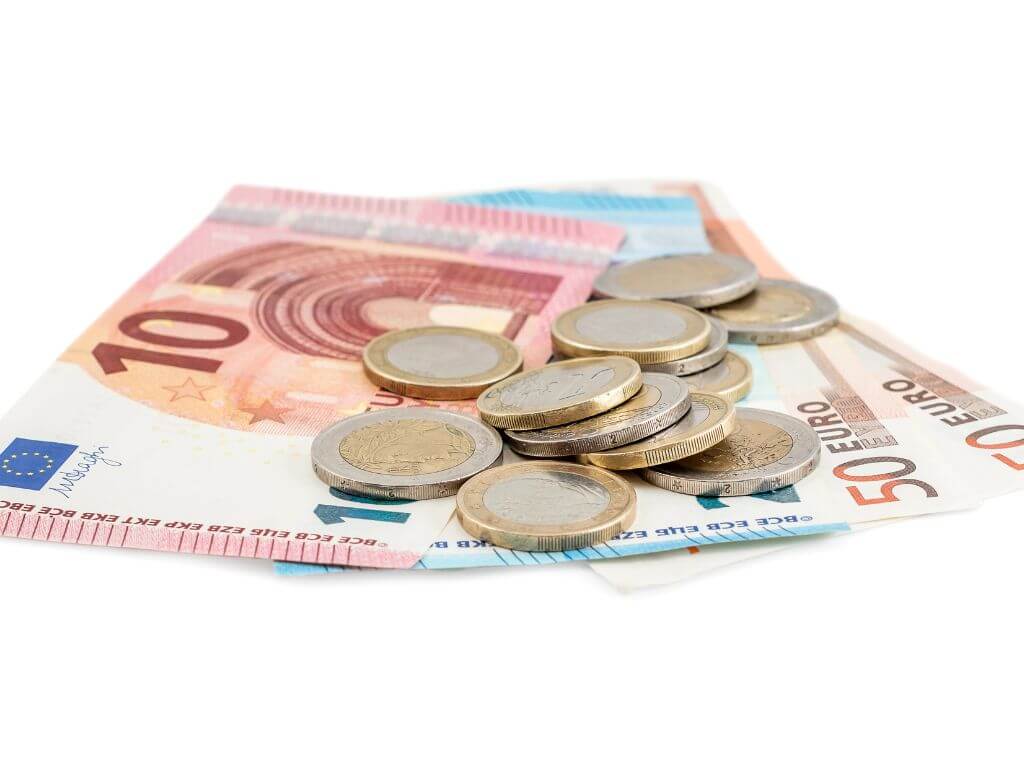
Cashless Ireland: The Modern Norm
Ireland has embraced digital payments with remarkable enthusiasm. You’ll find that card payments, particularly chip-and-PIN and contactless options, are accepted virtually everywhere across the country.
From bustling Dublin shops to quaint rural pubs, businesses routinely accept card payments.
Common payment methods in Ireland:
- Credit/debit cards with chip-and-PIN
- Contactless card payments
- Digital wallets (Apple Pay, Google Pay, Samsung Pay)
- Mobile banking apps
When traveling through Ireland, you’ll notice most locals tapping their cards or phones rather than handling cash. This cultural shift is evident in everyday transactions.
I was even surprised when I returned home after a hiatus of a few years to find everyone in my immediate family tapping away. I hadn’t embraced it then, so it shocked me a little bit.
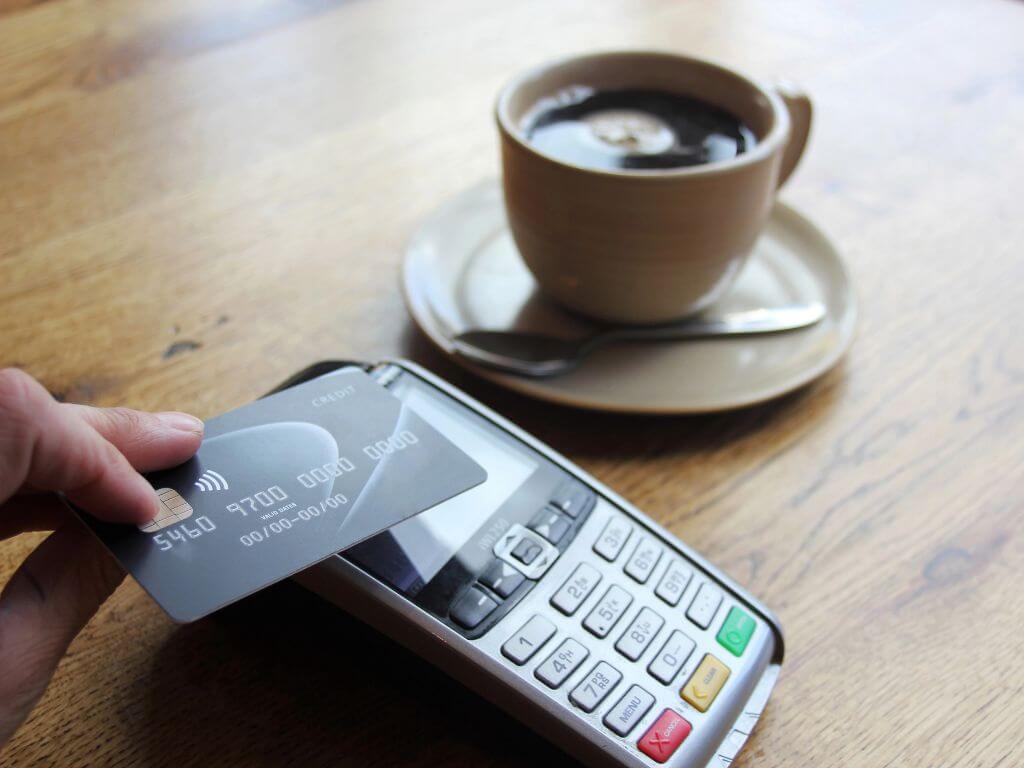
Many Irish residents confirm this trend in online discussions, noting they rarely carry cash anymore. The convenience of digital payments has transformed how people handle money throughout the country.
My sisters-in-law are regularly surprised by how much physical cash is used in Portugal when they come to visit us there.
I find that tourism-focused businesses are especially accommodating of cashless payments. Hotels, restaurants, tour companies, and transportation services all typically offer multiple payment options beyond cash.
You’ll find the contactless payment limit in Ireland is currently €50, allowing for quick tap-and-go transactions for most daily purchases. For larger amounts, chip-and-PIN verification provides additional security.
While card acceptance is widespread, having a small amount of cash for emergencies is still advisable, particularly in very remote areas where connectivity issues might occasionally arise.
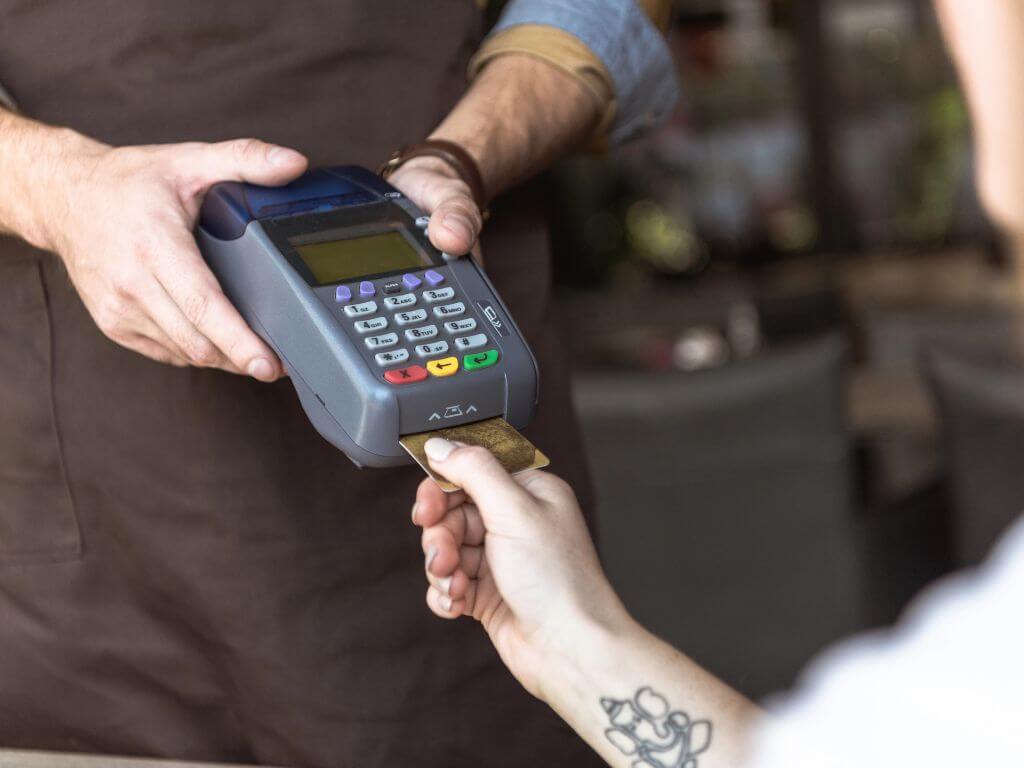
When Cash Is Necessary In Ireland
While Ireland has embraced digital payments widely, there are still several situations where having cash on hand is essential. Understanding when you’ll need physical euros can help you avoid inconvenience during your travels.
Rural Areas and Small Towns
In rural Ireland, cash remains king in many establishments. Small family-owned pubs, shops, garages, and cafés in villages may only accept cash payments, particularly in regions like Connemara, West Cork, and parts of Donegal.
Many rural B&Bs and guesthouses prefer cash payments to avoid card processing fees. You’ll find that some rural attractions, such as historic sites or small museums, may operate on cash-only systems. These are rare but do exist.
Local services in small towns—like taxi drivers, tour guides, or boat operators—often don’t carry card machines. It’s advisable to withdraw euros before venturing into rural areas, as even ATMs can be scarce in remote locations.
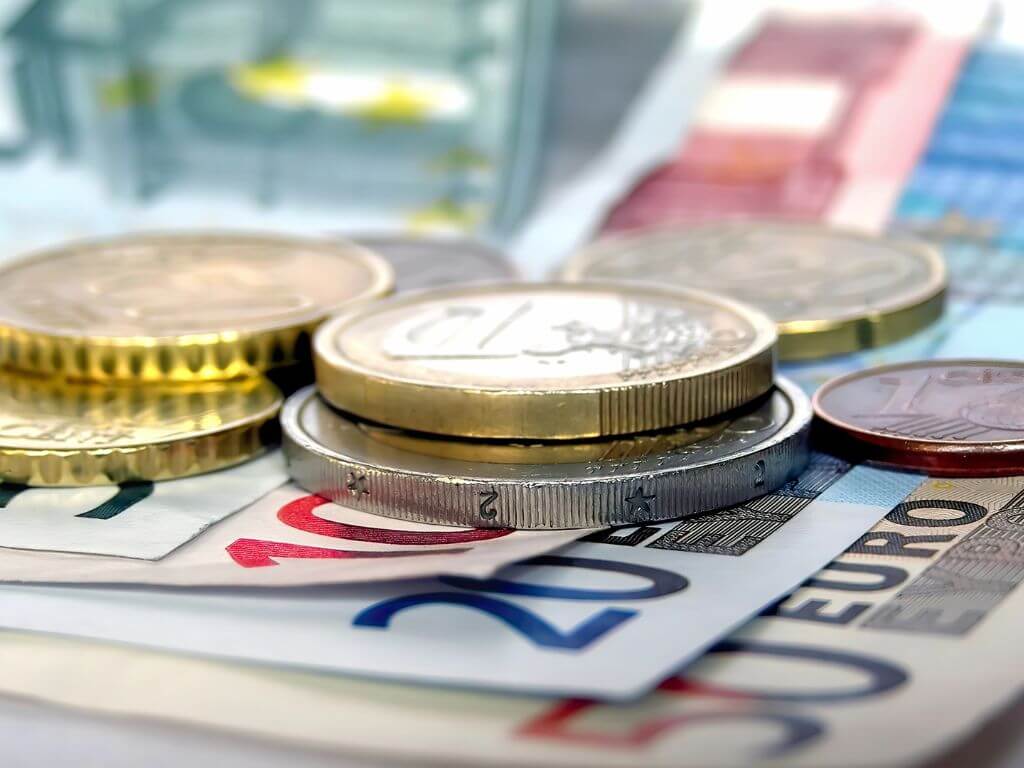
Small Businesses, Markets and Local Events
Many independent shops and rural businesses in Ireland operate with cash-only policies or have minimum card purchase requirements.
Family-run B&Bs and traditional pubs in smaller towns might accept cards but appreciate cash payments. These establishments typically have signs indicating “Cash Only” or “Cash Preferred” near their registers.
Local farmers’ markets, craft fairs, and small village shops often prefer cash transactions to avoid card processing fees. You’ll find this especially true in remote areas of counties like Kerry, Donegal, and Mayo.
When shopping at weekend markets in Dublin, Cork, or Galway, vendors selling handcrafted items, local produce, or street food frequently have limited payment options. Keeping €20-50 in small denominations ensures you won’t miss out on unique local purchases.
Traditional Irish festivals and local events often have cash-only food stalls and merchandise vendors. Small admission fees to local community events are generally collected in cash.
Seasonal markets, such as Christmas markets in Dublin and Belfast, also have many small traders who prefer cash transactions despite the occasional card option.
Public Transportation Limitations
Dublin buses require exact change or a Leap Card (Ireland’s transport card). Bus drivers cannot give change, so having coins is essential if you plan to use public transport without a Leap Card. Rural bus services often operate on cash-only systems, requiring exact change.
While most modern taxis accept cards including those in Dublin, some smaller operators, especially in less populated areas such as smaller towns and rural areas, typically only take cash.
Read this article to learn how to get around Dublin.
Some rural train stations have limited card facilities or ticket machines that may be out of service. When purchasing tickets on board trains, cash is sometimes the only payment method accepted if you haven’t pre-purchased your ticket online.
Toll roads occasionally have automated machines that work best with coins, so make sure you have some in case there are no manned booths. The Dublin Port Tunnel and M50 toll road offer electronic payment options, but smaller toll roads might not. Remember to pay your M50 toll by 8 pm the following day to avoid extra charges.
Bike rentals in tourist areas sometimes require cash deposits. Having €10-20 in coins can be helpful when using public facilities like luggage lockers or car parks in smaller towns.
Private shuttle services to tourist destinations like the Cliffs of Moher often prefer cash payments. Single-journey bus tickets in cities can require coins for ticket machines at stops where card payments aren’t available.
Tips and Gratuities
Tipping in Ireland isn’t mandatory, but is appreciated for good service. The typical rate is 10-15% in restaurants, €1-2 per drink in pubs, and 10% for taxi drivers.
Cash tips are preferred by service staff as they receive them immediately. Credit card tips may be subject to taxation or delayed payment systems.
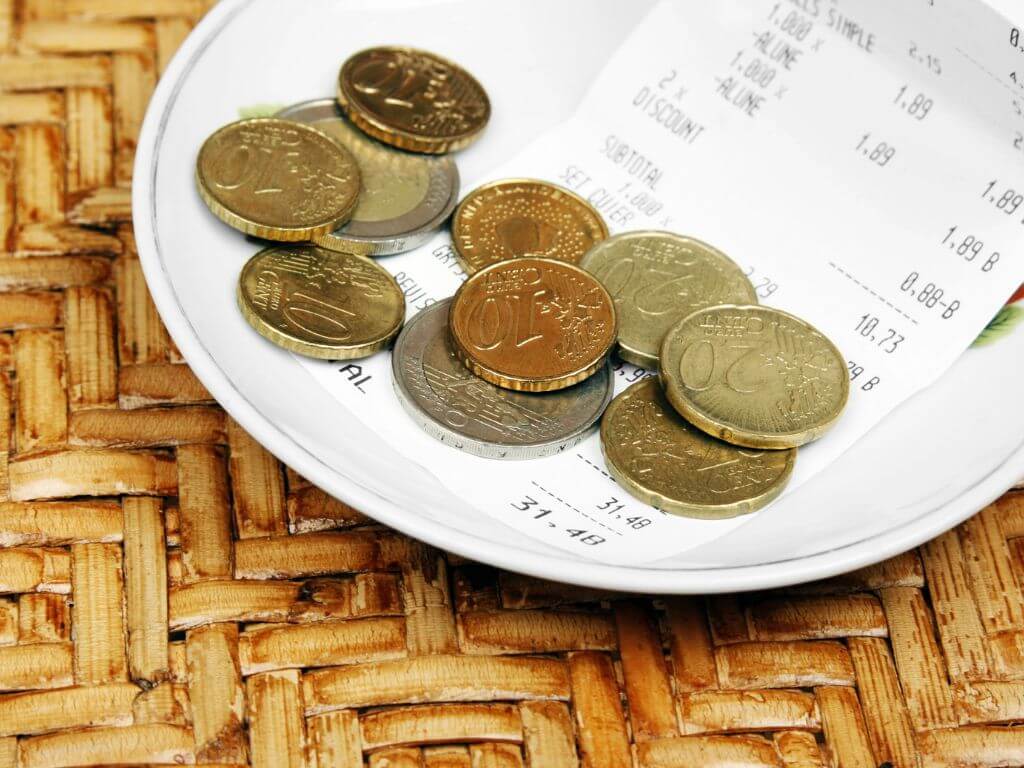
Tour guides appreciate cash gratuities for exceptional service, typically €5-10 per person for a day tour. If you join optional add-ons like folk music sessions or specialized guides, these often require cash payments of €10-20.
And remember, street performers in Dublin, Galway, and Cork rely on cash contributions.
How Much Cash Should You Carry?
When visiting Ireland, it’s wise to start with about €100 in small denominations (ask your bank or foreign exchange for €5, €10, and €20 notes) and coins for immediate expenses upon arrival, where possible. This amount covers initial taxi fares, tips, or purchases at places that might not accept cards.
You may not be able to get coins from a foreign exchange or bank, but if you think you’ll need some upon arrival, pop into one of the shops in arrivals and break your paper notes by making a small purchase.
If you’re planning to visit Northern Ireland, consider bringing £20-£50 in British pounds as well, since the Republic uses euros while the North uses sterling.
You can learn more about the difference between the Republic and Northern Ireland here.
For your first few days, having €100-200 available gives you comfortable flexibility while you locate ATMs and establish your spending patterns. Your hotel concierge can provide specific advice based on your itinerary and planned activities.
As a general backup, most travelers find €200-400 sufficient for their entire trip. This provides security in case of card issues without carrying excessive amounts of cash.
Daily Cash Needs Estimation:
- Urban areas: €30-50
- Rural areas: €50-70
- Pub nights: €30-60
- Markets/small shops: €40-60
Remember to store your cash securely, perhaps dividing it between your wallet and hotel safe. Don’t keep all your money in one place when exploring.
ATMs are widely available in cities and towns, allowing you to replenish your cash supply as needed rather than carrying large amounts throughout your trip.
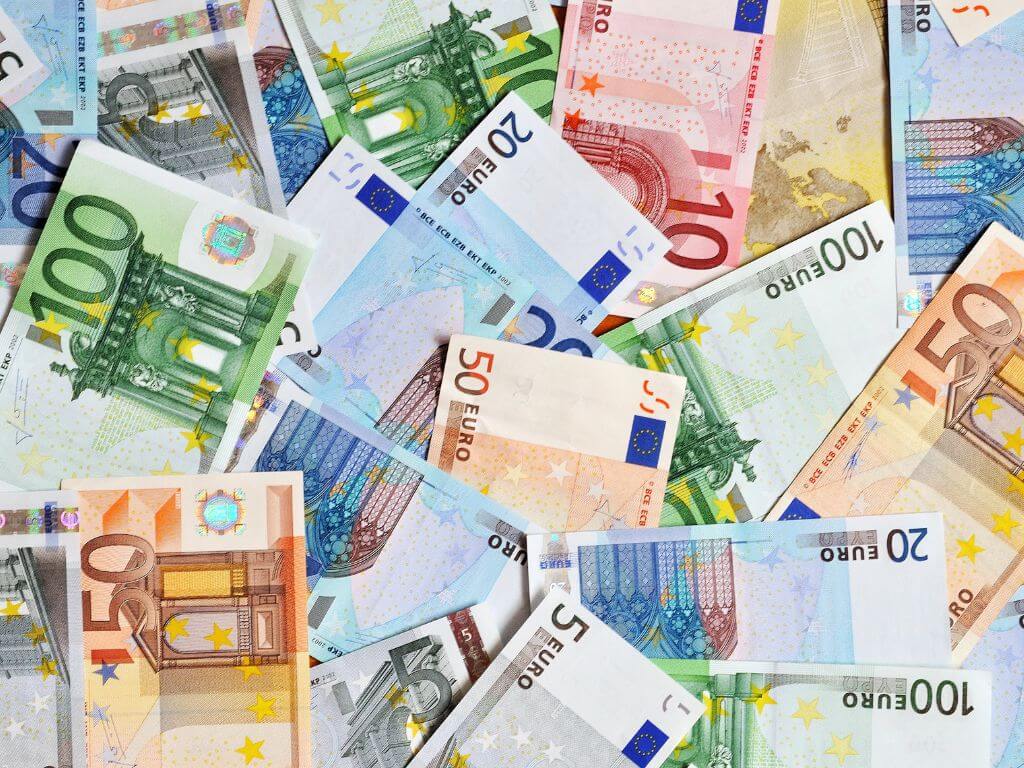
Something to be aware of if using money in Ireland
Several years ago, Ireland decided to round up or round down when giving change for cash transactions.
This means the cashier will round to the nearest 5c, meaning you will not receive 1c or 2c in your change. Yes, in certain circumstances, you are being shortchanged, but it evens itself out over the course of several transactions.
This does not apply to card transactions, only cash transactions.
This was to eliminate 1c and 2c coins from the vast circulation in Ireland, which the general public felt were useless.
So, if you are paying with cash and don’t receive that 1c or 2c, don’t be alarmed. It is normal practice in Ireland. This does not apply to cash transactions in Northern Ireland.
Access to ATMs and Banking Services
Ireland has a robust banking infrastructure that makes accessing your money relatively straightforward. Banking services are widely available throughout the country, with ATMs accessible in cities, towns, and even many rural locations.
ATM Availability
ATMs (locally called “cash machines”) are abundant throughout Ireland, particularly in urban areas. You’ll find them at bank branches, shopping centers, grocery stores, petrol stations, and most popular tourist destinations.
Dublin and other major cities have ATMs on nearly every commercial street. In smaller towns, you can typically find at least one or two ATMs in the town center.
Rural areas have fewer ATMs, but most villages have at least basic access. Popular tourist sites may have ATM facilities either on-site or nearby, but it is not always guaranteed.
Most Irish ATMs operate 24/7, though some located inside buildings may only be accessible during business hours. Look for ATMs operated by major banks like AIB, Bank of Ireland (pictured with an ATM beside the entrance door), and Ulster Bank for the most reliable service.
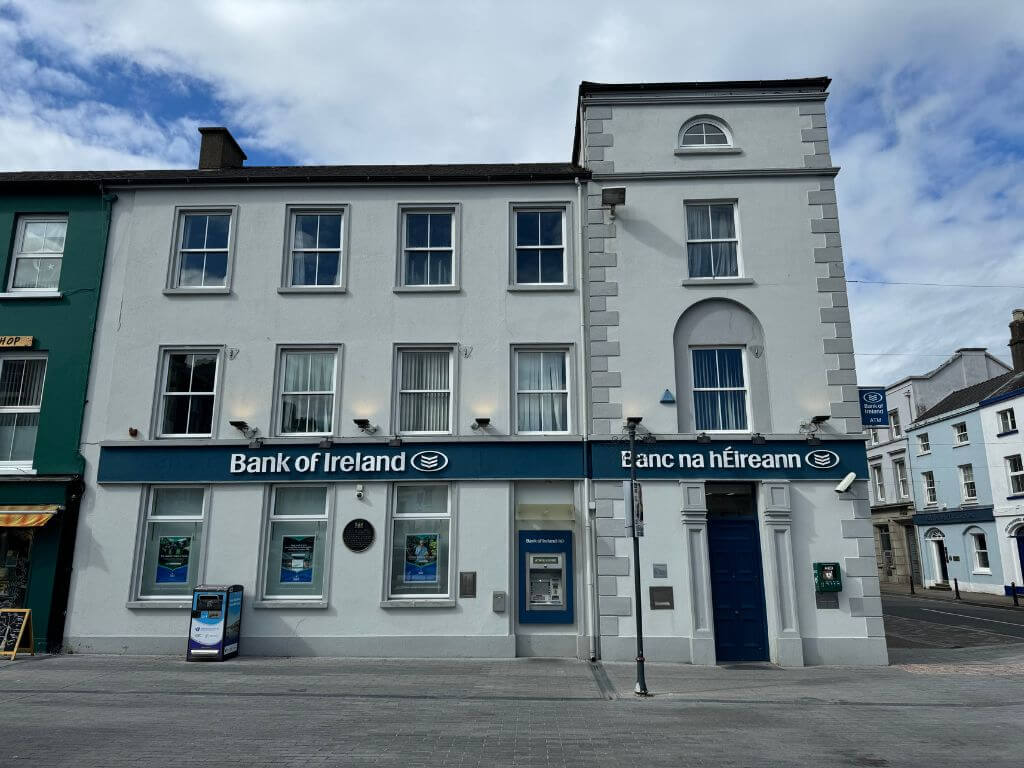
Foreign Bank Cards
Most Irish ATMs accept international debit and credit cards, including Visa, Mastercard, Maestro, and Cirrus network cards. American Express and Discover cards have more limited acceptance.
You can typically withdraw up to your bank’s limits per day. For example, in Portugal, our daily withdrawal limit is €400, so I have been able to withdraw up to that amount.
When using the ATM, you’ll be offered the option to be charged in euros or your home currency. Always choose euros to avoid unfavorable exchange rates.
Foreign transaction fees typically range from 1-3% of the withdrawal amount, plus potentially a flat fee of €2-5 per transaction. Your home bank may charge additional fees.
Contactless payment terminals are widespread in Ireland, allowing you to use your bank card or digital wallet for most purchases without needing cash.
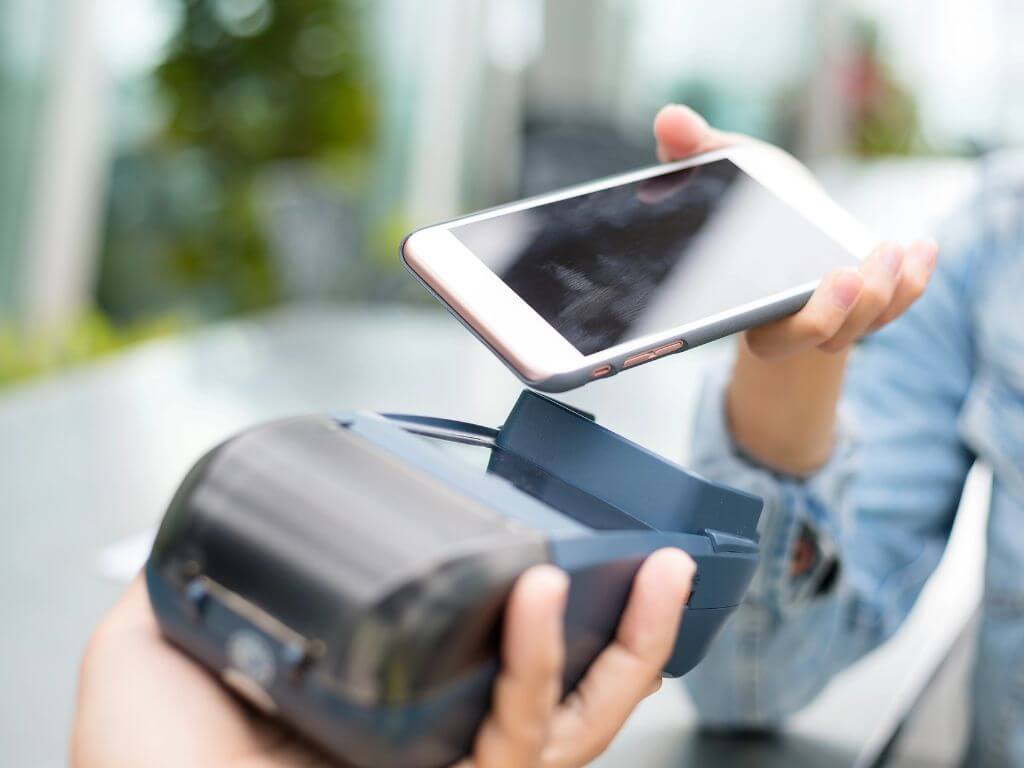
Tips for Getting Cash: Best Practices
- When traveling in Ireland, having access to cash remains important for small purchases and certain establishments. ATMs are widely available throughout the country and offer the most favorable exchange rates.
- Always use ATMs connected to established banks rather than standalone kiosks at airports or tourist areas. These bank-affiliated machines typically provide better rates and charge lower fees.
- Make sure your card has chip technology for enhanced security while traveling. Before your trip, notify your bank about your travel plans to prevent any unexpected card blocks.
- Check with your financial institution about foreign transaction fees. Most banks charge between 1-3% for international withdrawals, so understanding these costs beforehand helps you budget more effectively.
- When using ATMs or making card purchases, you may be offered “dynamic currency conversion.” Always decline this option and choose to pay in euros instead. Selecting your home currency typically results in less favorable exchange rates.
- For maximum convenience, consider withdrawing larger amounts less frequently to minimize per-transaction fees. However, avoid carrying excessive cash for safety reasons.
Popular Irish banks with widely available ATMs include:
- Allied Irish Bank (AIB, pictured below)
- Bank of Ireland
- Ulster Bank
- Permanent TSB
Remember to store your cash securely and consider keeping some emergency funds in a separate location from your primary wallet.
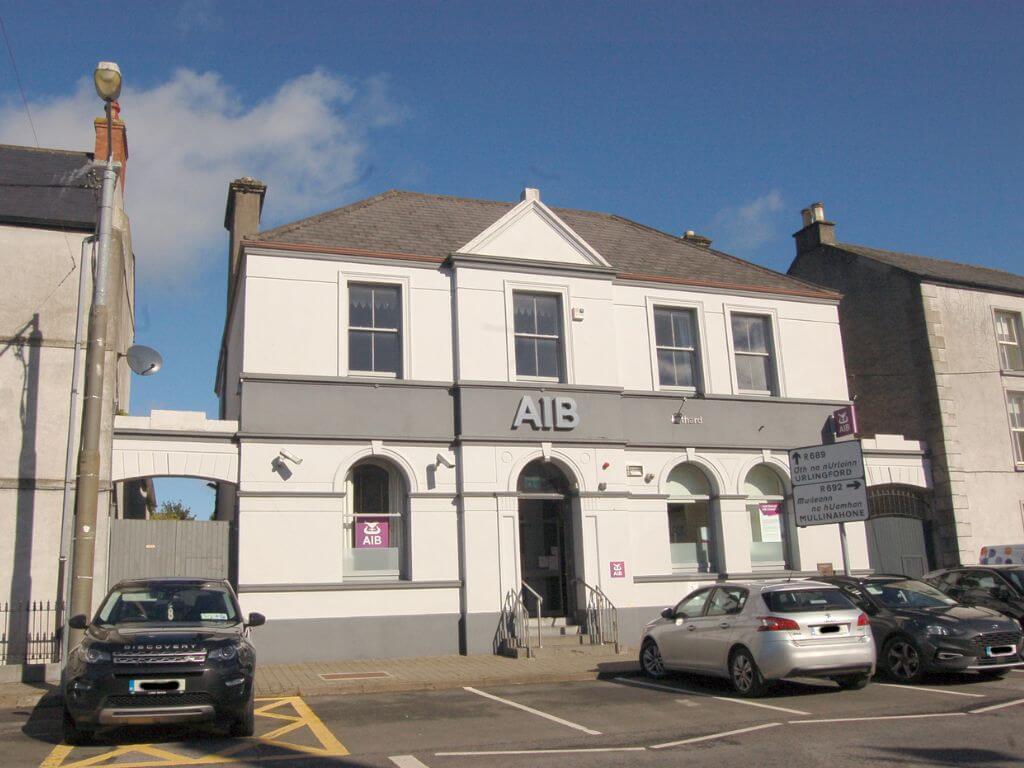
Card vs Cash: Pros & Cons
Credit and debit cards offer significant convenience when traveling in Ireland. You’ll find Visa and Mastercard widely accepted in most establishments across the country, with tap-to-pay and mobile payment options readily available.
However, card payments may come with foreign transaction fees from your bank.
It’s also worth noting that American Express and Discover cards have more limited acceptance compared to Visa and Mastercard. So, if American Express is your only card, you will need to have an alternative method of payment.
As already mentioned, rural Ireland presents different challenges. In remote areas, cash becomes more valuable as some smaller establishments and local attractions might not accept cards.
Cash remains essential for local bus services in many areas, especially outside major cities. Many drivers don’t accept card payments, making cash necessary for transportation.
Tipping is another situation where having cash is beneficial. While you can add tips to card payments in restaurants, having small bills makes tipping hotel staff, tour guides, and other service providers much easier.
| Payment Method | Best For | Watch Out For |
| Cards | Cities, hotels, restaurants, shopping | Foreign transaction fees, limited AMEX acceptance |
| Cash | Rural areas, local transport, tipping, small purchases | Security risks, ATM fees |
Carrying large amounts of cash presents security concerns and isn’t recommended. ATMs are available in most towns, but withdrawals might incur fees from both Irish banks and your home bank.
Tips & Takeaways
Always carry some cash when visiting Ireland. I recommend bringing about €100 in small denominations to start your trip, then withdrawing more as needed.
Contact your bank before departure to avoid card blocks. Nothing ruins a vacation faster than having your card declined because of suspected fraud! Believe me, it happened to my husband and I on a weekend trip to Zurich when our card was declined by the hotel at check-in.
Visa and Mastercard are widely accepted throughout Ireland. However, American Express and Discover cards have limited acceptance, so bring alternatives if these are your primary cards.
Public Transport Tips:
- Consider purchasing a Leap card in Dublin for easier public transit
- Keep coins handy for buses that don’t accept cards
- Small bills are useful for rural transport options
If your itinerary includes Northern Ireland, bring £20-50 in British pounds. While many border businesses accept euros, having pounds will save you from unfavorable exchange rates.
Keep a small stash of coins and €5 notes for unexpected situations like parking meters, rural honesty boxes, and small purchases in areas with limited card acceptance.
Always carry at least one backup payment method. Even in our digital world, having only one payment option can leave you stranded if something goes wrong.
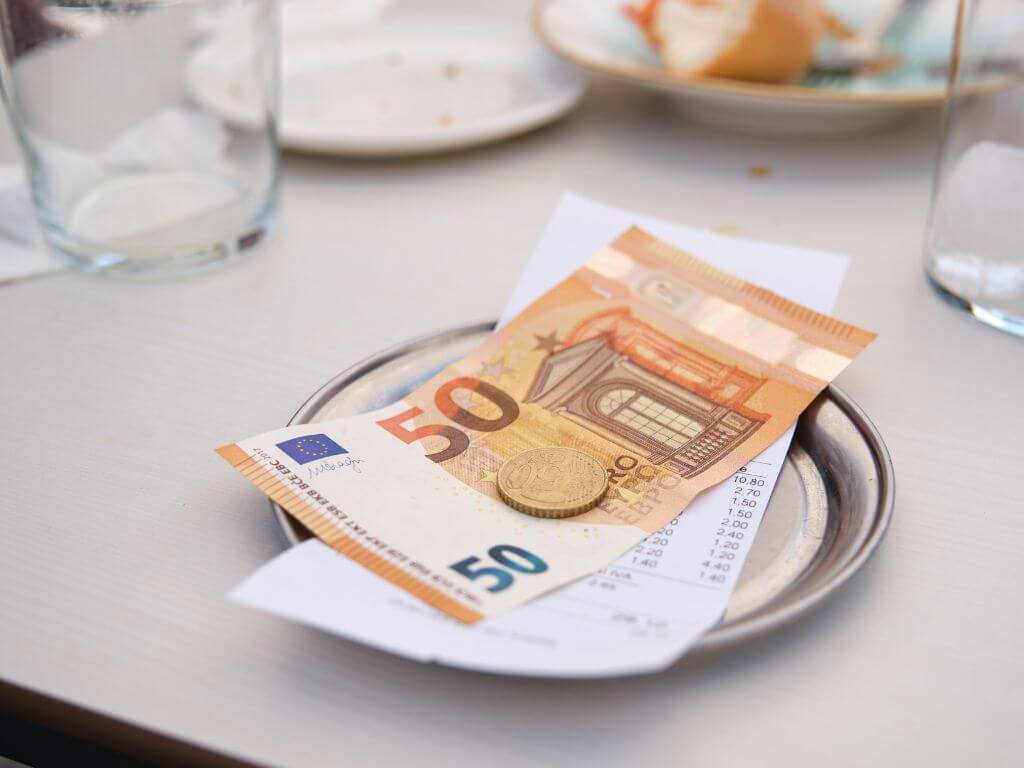
Final Thought on Whether You Need Cash in Ireland or Not
Ireland is largely card-friendly, but carrying around €100 in cash is a smart backup.
While most places accept cards without issue, small pubs, markets, or rural spots might still prefer cash.
ATMs are easy to find, and letting your bank know about your travel plans will help avoid card issues.
A little cash also offers peace of mind for those just-in-case moments.
PS. Before you go, check out these helpful articles
- What Language is Spoken in Ireland
- Is Ireland Expensive to Visit?
- Costly Ireland Travel Mistakes You Don’t Want to Make
- Nicknames for Ireland You Should Know
- Weird Laws in Ireland You’ve Probably Never Heard of!
Pin for later!
